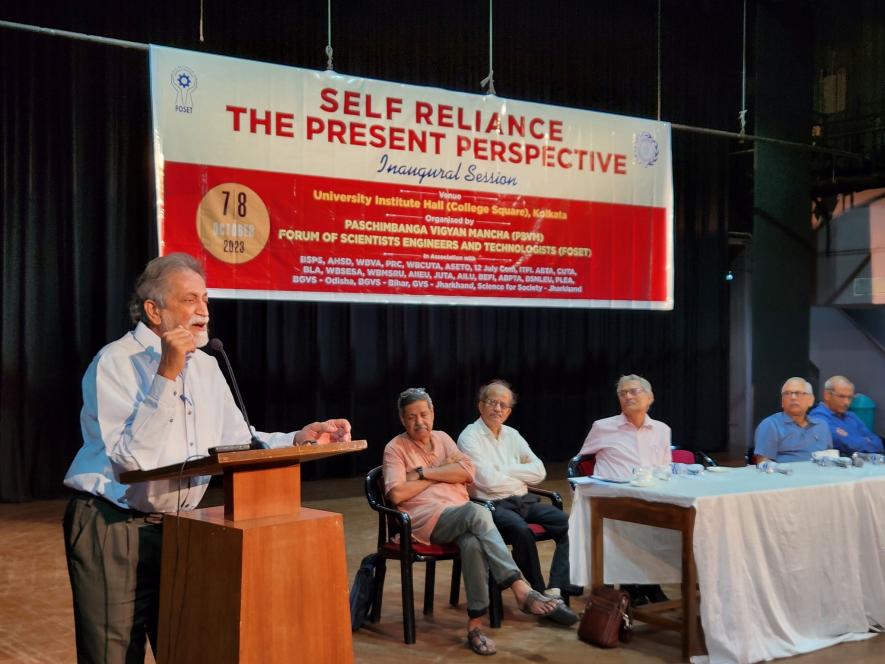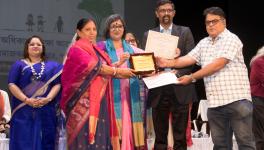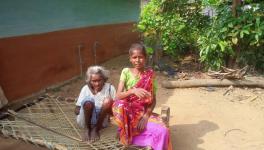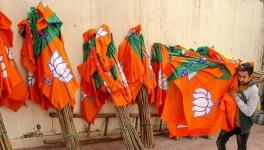India Falling Behind in Food Production is Alarming: Prabhat Patnaik

Kolkata: The nation would be in a catastrophic predicament if the neo-liberal strategy is continued. Systems for food production, education, and health will be in jeopardy, said well-known economist Prabhat Patnaik.
Patnaik was participating in a discussion on "Self-Reliance of the Country in the Present Context" here on Saturday at the Calcutta University Institute Hall, organised by the West Bengal Science Forum and the Forum of Scientists, Engineers, and Technologists (FOSET).
"The government should consider the needs of the citizens rather than the interests of foreign capitalists," said the professor, adding that “the situation of the nation's impoverished people won't change if taxes on the wealthy aren't levied rigorously. The same message is being repeated by leftists all around the nation," he further said.
"We want the production and full use of domestic resources for the welfare of the country's people. The country will not have an income if the money comes from abroad. The country needs more agricultural and industrial production using its technology. If we rely on foreign capital to run the country, if that capital leaves the country, then we, the people of the country, will sit on the roads. The present time is indicating that."
Talking about India's economy, Patnaik said, "India's exports have decreased, and the price of the rupee is decreasing. Economic progress of the entire world is being hindered. Second, food self-sufficiency is essential for our country. The country is gradually falling behind in food production. Many lands and resources in the country are unused. Not being used. Meanwhile, the government is withdrawing subsidised prices, and farmer suicides are on the rise."
"If the government focuses only on luxury products through foreign exchange transactions, then there is a dire danger in front of the people of the country. Because people's purchasing power has decreased, farmers have no purchasing power. In this way, the self-reliance of a country is not created. Government support is needed in industry and agriculture," he added.
He said privatisation of education was a danger, as it was necessary to entrust the history and culture of the country in our educational institutions and universities under the government's patronage.
"Do not copy foreign countries. Then, we will lag in higher education, and it is happening. If there is a problem with the neo-liberalism, it will have a terrible effect on the people of the country. Overall, the government should focus on food self-sufficiency, employment, government-sponsored and funded education, health sector improvement, and old-age pensions."
Soumya Dutta, convenor of the 'Bank Bachao Desh Bachao' platform, said, "There is an attempt to weaken the state-owned banking sector through merger or privatisation. And microfinance is being supported. In this way, common people are exploited. The country can only stand on its own two feet if its financial base is solid."
Former Jadavpur University Vice Chancellor, Siddharth Dutta, said: "Science and technology research of the country is not being utilised well. There is an attempt to increase the materials used in agriculture and industry by bringing technology from outside. On the other hand, commercial issues are entering along with the innovation. The education policy is being formulated in such a way that there is a difference between research and higher education. How will the country's self-reliance come?"
Satyajit Chakraborty explained the role of the West Bengal Science Forum in the context of the country's self-reliance and the future issues to be addressed.
Leaders of various organisations, including BEFI, AHSD, BSNLU, WBMSRU, and university professors, participated in that discussion.
Get the latest reports & analysis with people's perspective on Protests, movements & deep analytical videos, discussions of the current affairs in your Telegram app. Subscribe to NewsClick's Telegram channel & get Real-Time updates on stories, as they get published on our website.
























